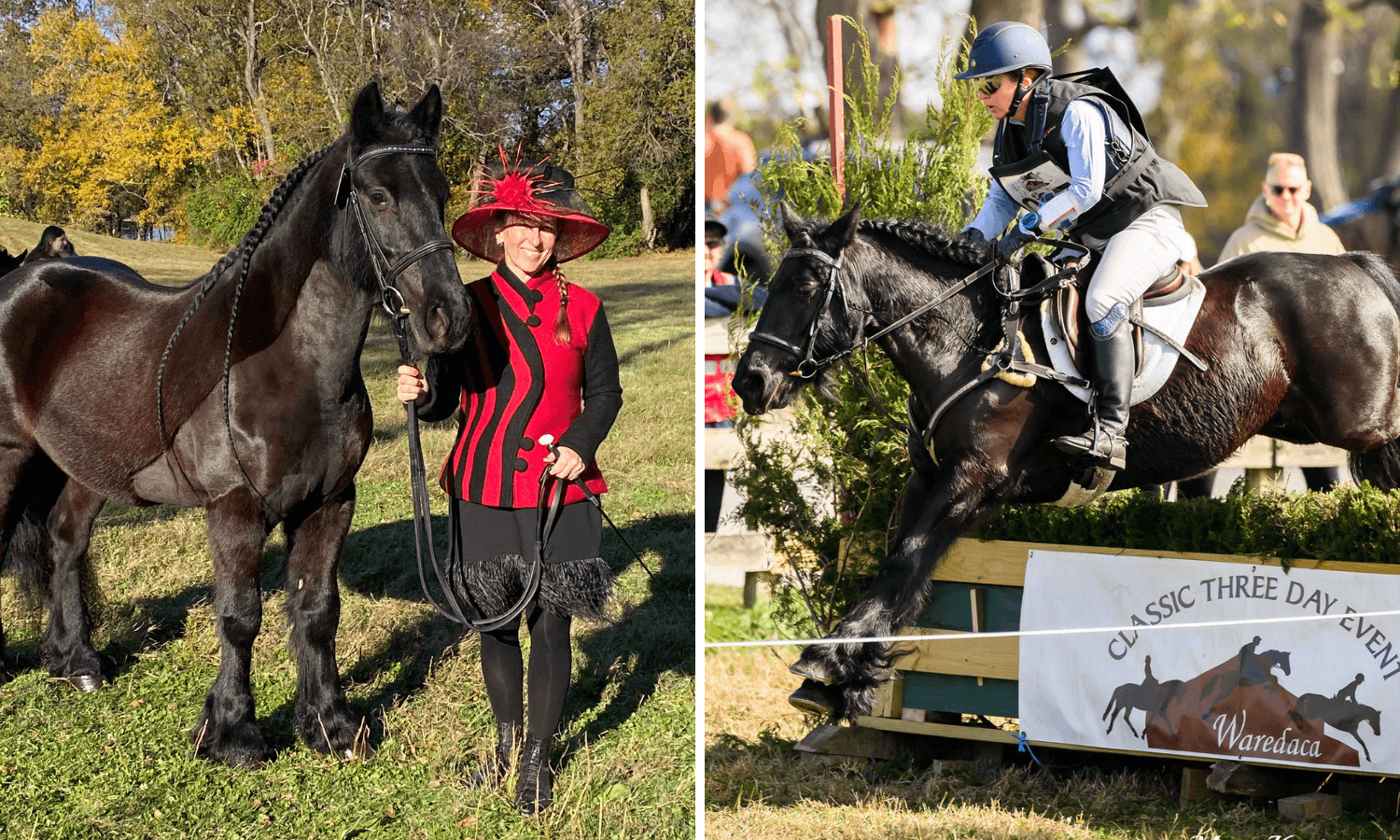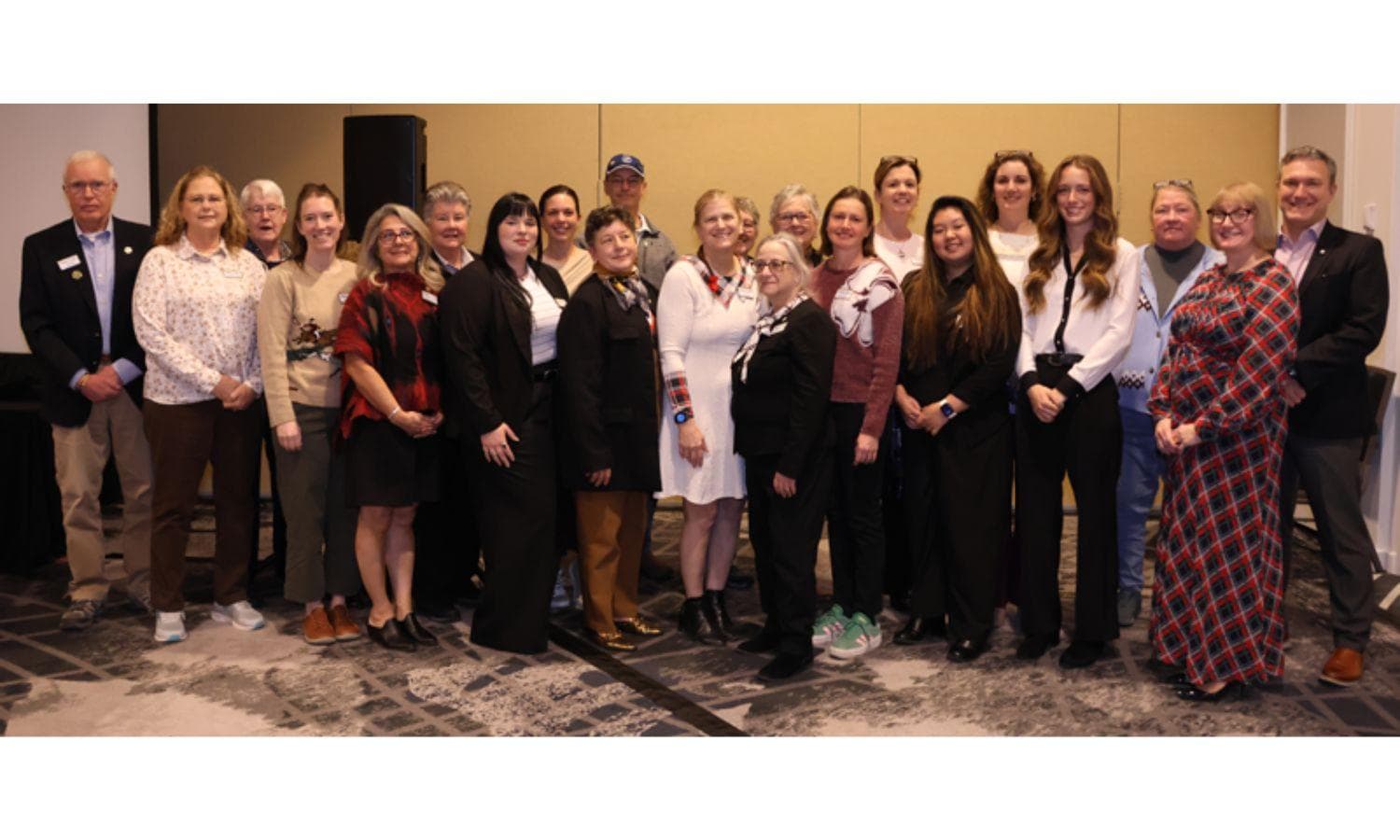Medal Memories: Bonnie Kibbie and Loki
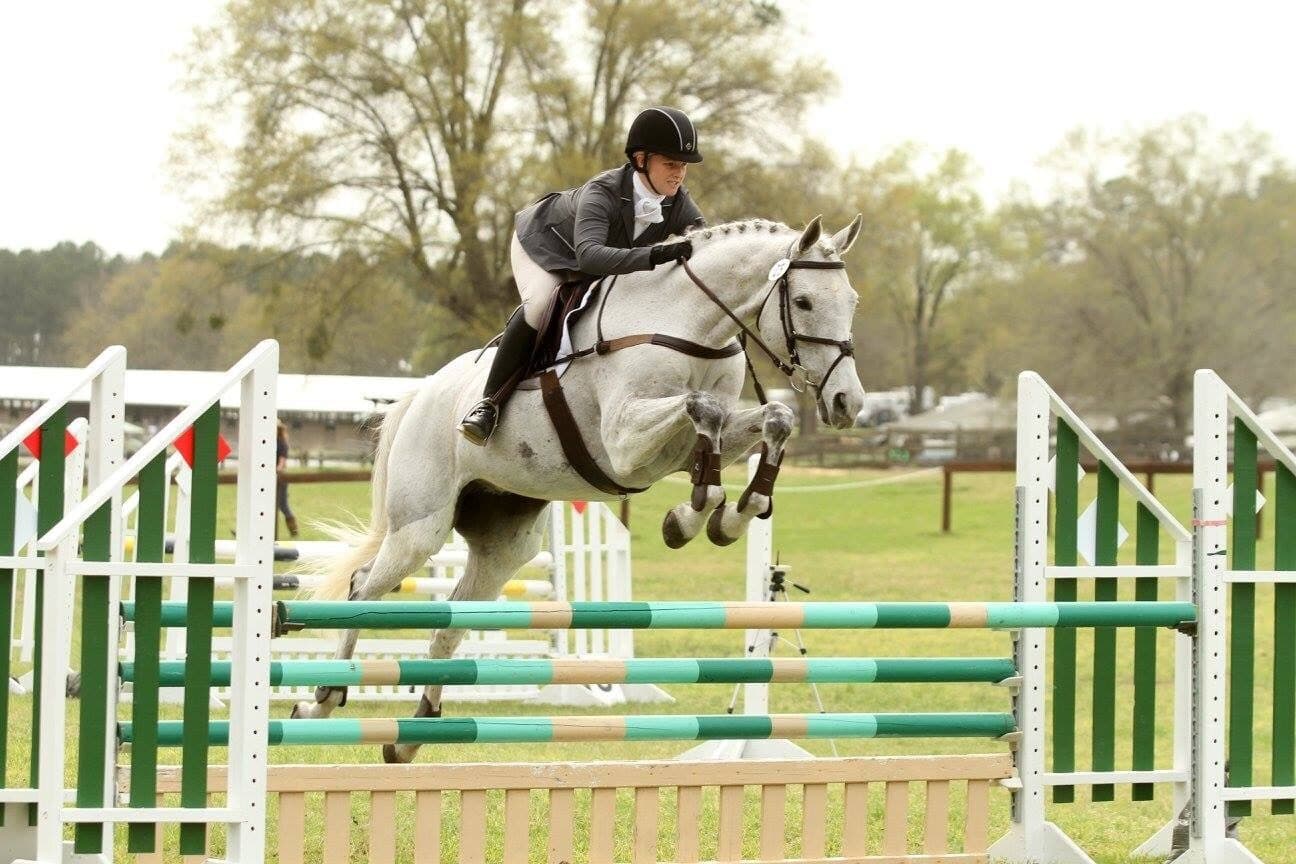
Since the USEA Medal Program was founded 10 years ago, 2,304 gold, silver, and bronze medals have been awarded to USEA members. The USEA Medal Program was started in 2009 as a way to recognize USEA members for their accomplishments in the sport of eventing. Riders may earn their gold, silver, and bronze medals at Beginner Novice through Preliminary levels based on the scores they achieve in competition – rewarding merit over placings.
Every member goes for a medal for a different reason and for Bonnie Kibbie it was a way to honor her partnership with Loki (River Quest x Bea Gifted), a 19-year-old off-the-track Thoroughbred gelding owned and previously competed by her husband, Jeff Kibbie. Bonnie and Loki earned their Preliminary Silver Medal in the spring of 2016.
“He’s our whole family’s once-in-a-lifetime horse,” Bonnie explained. “He was a horse that Jeff turned down twice as a project. A friend of Jeff’s in Michigan bought him off the track for $400. He was pretty nasty – he took a long time to get rideable – and he had a lot of physical problems. We determined, sort of by process of elimination, that he had probably had a bad tongue tie at the track and had some nerve damage because he’s always had mouth issues.”
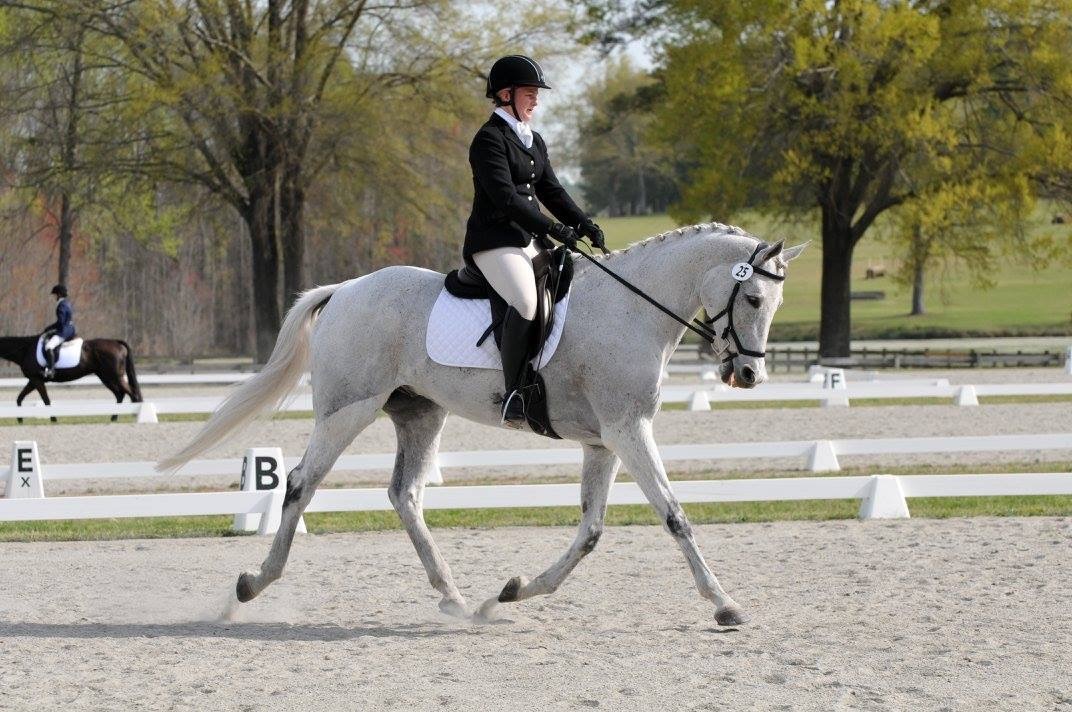
After the second or third time Loki had injured the people trying to work with him, Jeff made the decision to take him on and see if Loki would like a career as an event horse. “Jeff got Loki right around the time he was doing a lot of work for the O’Connors, so he worked with David a lot in the round pen doing the natural horsemanship stuff and getting him to trust people again,” Bonnie recalled. “Then, he started eventing him.” The pair moved easily from Training to Preliminary, and then from Preliminary to Intermediate, all the way through Advanced. “He took Jeff to his first Advanced, he took him to his first three-star, and he just kept getting cooler.”
“Intermediate was kind of his comfort zone – he was just a little too careful and not quite bold enough – so Jeff dropped him back down,” Bonnie continued. “I was kind of at the point where I wanted to start riding again and he was getting older, so I started riding him. I hadn’t ridden in four or five years because of vet school and work. We started at Novice – he was really bored and I was terrified. We moved up to Training and I got to do the Training Three-Day at Waredaca with him (part of the Hylofit USEA Classic Series), which was amazing – it was the most fun I’ve ever had at a horse show. He was definitely an old format horse – he loved steeplechase so much, we had a blast. Then I moved him up to Preliminary in the winter of 2016 and he was awesome. He never put a foot wrong, we never had a cross-country penalty, he just went out there. He made me very brave.”
Bonnie and Loki competed at the Rocking Horse Winter III Horse Trials where they were second on a 34.4 before heading to Pine Top Spring Horse Trials, where they finished in second place on a 42.5. They achieved the third and final score they needed for their silver medal at Fair Hill in April where they finished fourth on 34.4.
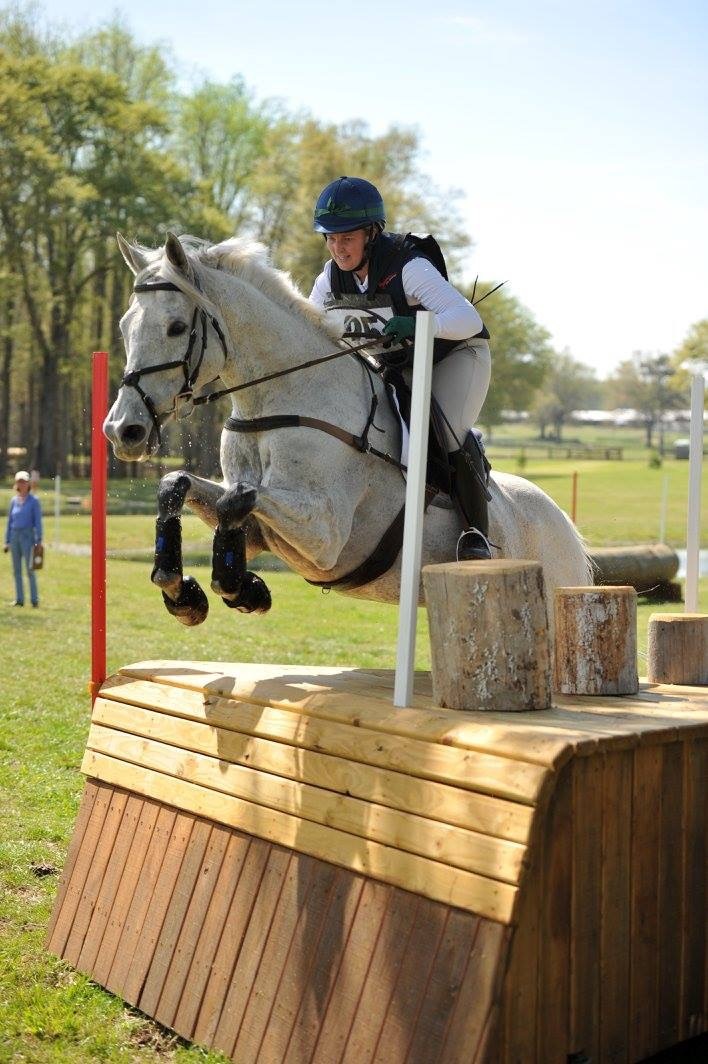
At the end of the spring season, Bonnie took a hiatus from riding because of her first pregnancy. After Bonnie gave birth to her son, Eli, and Loki had had some time off to recover from an injury, she brought him back into work. Now, at the age of 19, he does some dressage and goes trail riding when Bonnie has the time. “He’s earned his retirement – he doesn’t owe us anything,” she said. “[We just want him] to do leadline stuff with Eli. He’s living the good life now. We have three halters hanging out by the pasture and the only one with a chain on it is Loki’s. He’s like, ‘I just need everyone to know that I was once a very big deal.’ And to us, he is still a really big deal.”
“But man, what a cool thing to do – to go out with a bang, to be able to say we only had one season at Preliminary, but we made it count,” she said. “I think what everyone wants the first time they go Preliminary is to be safe, have fun, and learn some things, and we ended up having this amazing season. Anytime you go out and show your goal is to do your best. I’m not a super competitive person, so it was kind of icing on the cake that we were able to medal.”
Bonnie believes that earning your medal is a great way to celebrate your accomplishments over the course of a season or a year. “It’s cool to be able to say, ‘Wow, I’ve been working really hard and I’m really pleased with the progress that we’ve made,’ and it’s not just a one-off,” she said. “I really had to earn it, and it’s cool that I show up on the leaderboard and I show up on the Medal Program list as having done this. It’s easy to go to one show and say, ‘Oh, well, there were only four people in the class so of course I’m going to get second place.’ You have to do it multiple times at multiple venues – it’s a nice recognition of the cumulative results of all your efforts. It’s not like you go to just one show and bam, you get your medal. You have to put in the work and show the results.”
If you are interested in applying for your gold, silver, or bronze medal at any level from Beginner Novice to Preliminary, visit the Medals page of the USEA website to find all the information you need to submit your application! Curious what other riders have earned their medals? You can view all recipients in the sidebar links.
Do you have a medal memory to share? We want to tell your story! Email your tips to [email protected].

